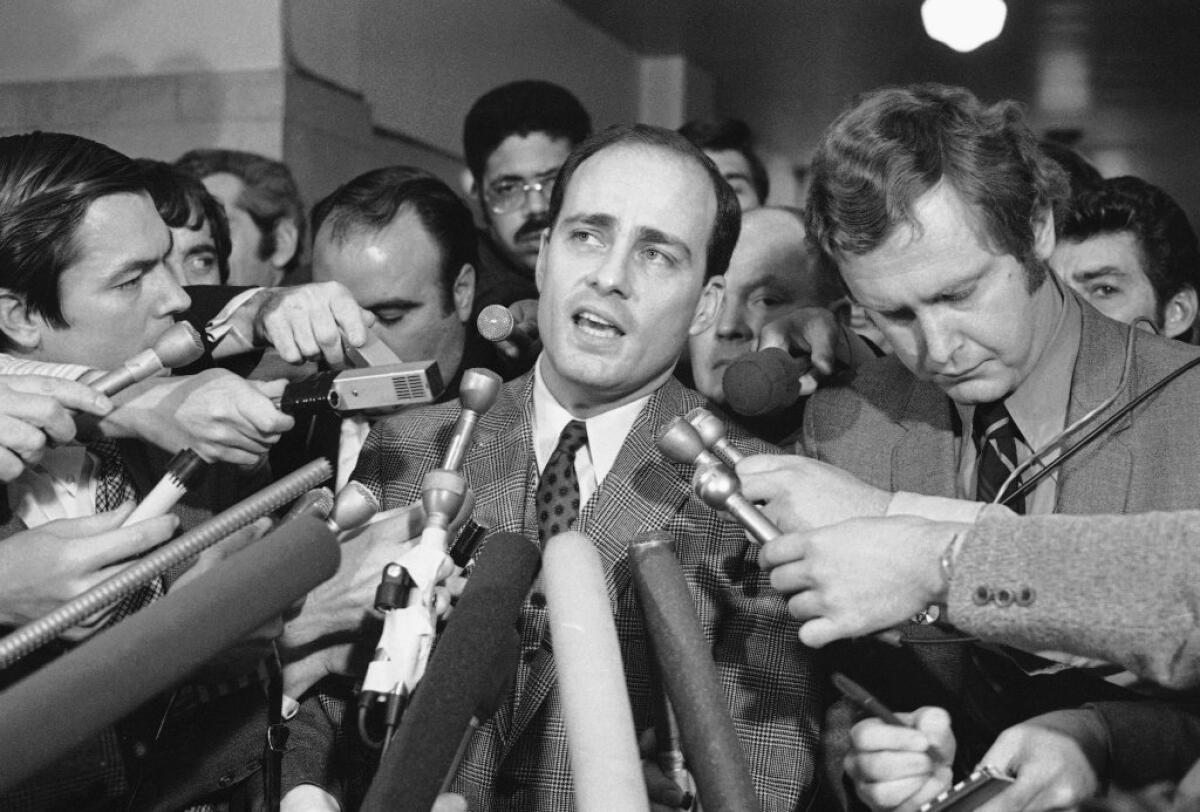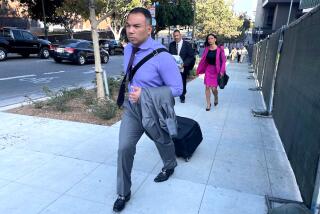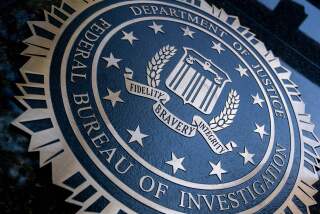Opinion: There was much more to Vincent Bugliosi than the Charles Manson case

Chief prosecutor Vincent Bugliosi speaks to reporters in 1971 after
Vincent Bugliosi, the man who prosecuted murderer Charles Manson and his minions, died over the weekend.
It’s his work on the Manson case that still rivets the world’s attention, but in the long interview we had in at his home 2009, and in some phone conversations thereafter, he kept me filled in on the work he did that wasn’t about “Helter Skelter,” books about the O.J. Simpson case, the assassination of John F. Kennedy, the failings of the George W. Bush presidency, all of them written — by hand — with what I called his “magisterial fury” and his passion to see justice done “though the heavens fall.” It was his virtual prosecution, in “Reclaiming History,” of Lee Harvey Oswald, proving to his satisfaction and then some that Oswald killed JFK alone, that he counted as his best and most important written work.
Here are more of his observations from our 2009 talk:
• “I have no illusions about being a great author. I have a tremendous ego when it comes to being a trial lawyer, but not as a writer.”
• “The only thing that enables me not to be bored [talking about the Manson case] is the people talking about it; I see that they’re so interested. The durability of this case is just incredible. If someone had written a novel with the same set of facts and circumstances, most people would put it down after a couple of pages because good fiction has to be somewhat believable, and this was just too far out.”
• “Fright has its allure. You judge a [horror] movie by the degree to which it terrifies you, and Manson delivers high up on the fright-meter. Years ago, Rolling Stone called him the most dangerous man alive. When you look at other mass murderers in America, like Richard Ramirez or Ted Bundy, the vast majority committed the murders by themselves. Manson got other people to kill for him at his command.”
• “Normally a prosecutor doesn’t talk to a defendant but [Manson] wanted to talk. He said, ‘You know, Bugliosi, you haven’t achieved anything. All you’ve done is send me back where I came from.’ Our conversations were frequently sarcastic and I said, ‘Charlie, you haven’t been to the green room [gas chamber] before.’ He sort of smiled. When I heard on the radio that the Supreme Court had set aside the death penalty, that came immediately to mind. In a sense, he’s beaten the rap.”
• “Manson wrote me four letters years ago, and one of them — I hate to say — brought a little smile to my face. He seemed to be disturbed that I hadn’t answered his previous letter! I turned the letters over to the Department of Corrections. He’s not insane; his moral values are extremely twisted and warped, but we shouldn’t confuse that with insanity. He’s crazy the way Hitler was crazy. He’s able to assess his weaknesses and strength and knows exactly what he’s doing.”
Follow Patt Morrison on Twitter @pattmlatimes
More to Read
A cure for the common opinion
Get thought-provoking perspectives with our weekly newsletter.
You may occasionally receive promotional content from the Los Angeles Times.







